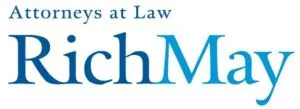- within Tax, Energy and Natural Resources and Environment topic(s)
- with Finance and Tax Executives
- with readers working within the Accounting & Consultancy, Oil & Gas and Utilities industries
In July 2025, Congress passed, and the President signed, the One Big Beautiful Bill Act (the “OBBBA”). The OBBBA includes a major overhaul of the Qualified Small Business Stock (“QSBS”) rules under Internal Revenue Code Section 1202, representing the first substantial update in over a decade. The OBBBA expands the benefits applicable to QSBS acquired after July 4, 2025.
QSBS Generally
QSBS is a tax benefit that applies to eligible shareholders of certain small businesses. The QSBS tax exclusion allows eligible taxpayers to exclude a portion of the capital gains realized from the sale or exchange of QSBS from their federal taxes. To qualify as QSBS, several criteria must be met, as set forth below:
- the company must be a domestic c-corporation issuing original stock to the taxpayer;
- at and immediately after issuance, the company's aggregate gross assets must not exceed a specified threshold;
- at least 80% of the company's assets must be used in the active conduct of a qualified trade or business; and
- the shareholder must hold the stock for a minimum period before selling.
QSBS Rules Pre-OBBBA
Prior to the OBBBA, taxpayers were generally permitted to exclude from taxable income capital gains attributable to the disposition of QSBS that was held for more than 5 years. Exclusion percentages were tiered depending on the acquisition date and capped at the greater of $10 million or 10 times the taxpayer's tax basis.
Changes under the OBBBA
The OBBBA enhances key areas of the QSBS rules to be more favorable to taxpayers by:
- shortening the holding period;
- tiering the gain exclusion based on the holding period, rather than the issuance date;
- increasing the gross asset value limitation; and
- increasing the cap on capital gains.
A side-by-side comparison of these key areas pre-OBBBA and under the OBBBA is detailed in the chart below.
| Item | Pre-OBBBA | OBBBA |
| Holding period | > 5 years | > 3 years |
| Tiered gain exclusion | ||
| 100% | stock acquired after September 27, 2010 | stock held for 5 or more years |
| 75% | stock acquired after February 17, 2009 and on or before September 27, 2010 | stock held for 4 years |
| 50% | stock acquired on or before February 17, 2009 | stock held for 3 years |
| Cap on gain exclusion | greater of $10 million ($5 million for married taxpayers filing separately) or 10 times the taxpayer's tax basis in the QSBS | greater of $15 million ($7.5 million for married taxpayers filing separately), (inflation adjustments begin 2027), or 10 times the taxpayer's tax basis in the QSBS |
| Gross assets limit | $50 million | $75 million (inflation adjustments begin 2027) |
Practical Impact of the QSBS Changes under the OBBBA
The OBBBA makes QSBS more flexible, more generous, and more widely applicable, but only for stock issued after July 4, 2025. For founders, investors and employees this means:
- earlier liquidity options: with partial exclusions at 3 and 4 years, earlier exits or secondary sales are more attractive;
- higher excluded gains: the increased cap helps high-growth exits reach greater tax-free profits; and
- qualification of more companies: with an increased gross asset limit, the pool of eligible businesses has been expanded.
Prior shareholders benefit only from the legacy rules if they acquire new stock.
The content of this article is intended to provide a general guide to the subject matter. Specialist advice should be sought about your specific circumstances.
[View Source]

